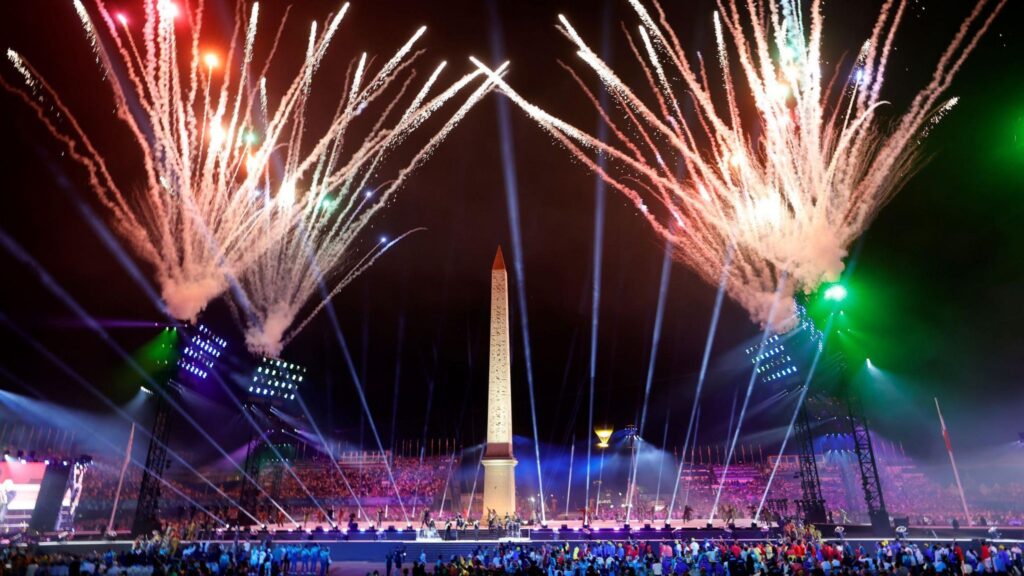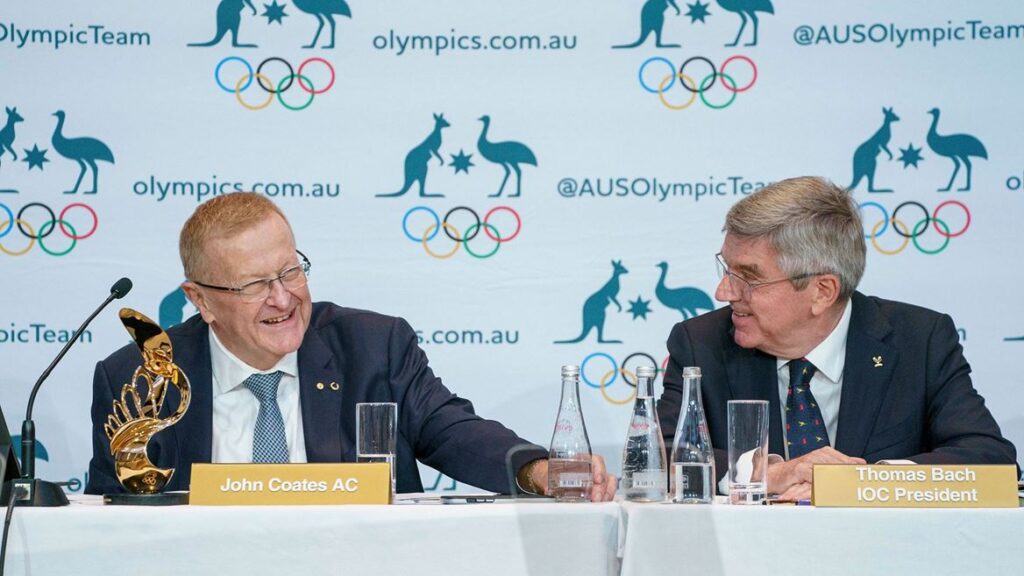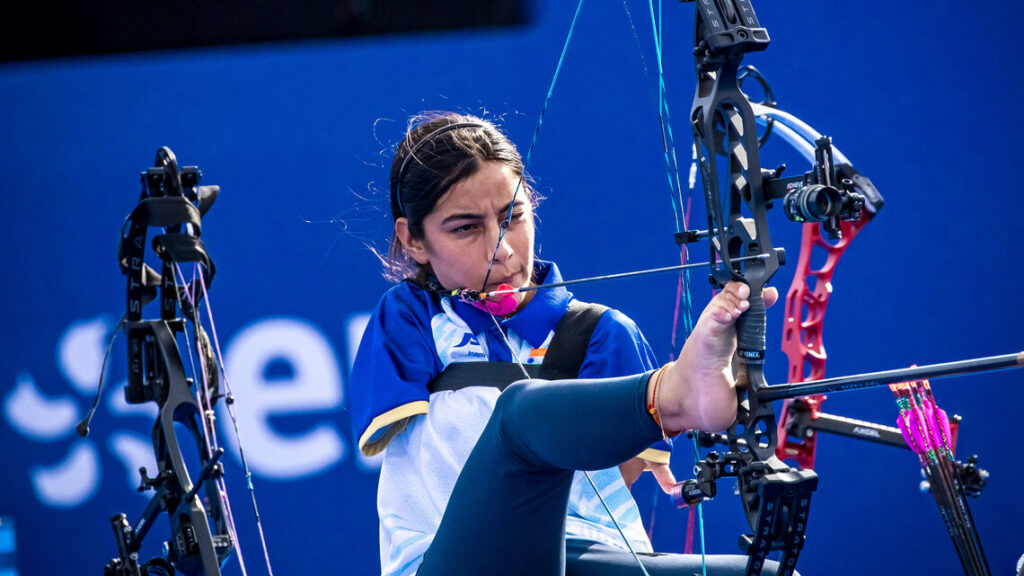2024 Paris Games And Summer Rains That Brought New Life To World Sport
September 12, 2024
Olympic advisor Michael Pirrie outlines how Paris has now joined London and Sydney in hosting monumental Games that have brought the world together around epic sport.
The dramatic Paris rains that shadowed the Olympic Opening Ceremony of boats and athletes down the Seine also returned for the closing of the Paralympics, bookending a unique summer of sport that both weathered and captivated a world in crisis
The driving rains would clear and reveal a landscape of stunning Paris landmarks and backdrops that enthralled a troubled world.
The settings for the Paris Games will live long in the world’s memory of the Summer of 2024
Rarely, if ever, has sport been showcased in as many wonderous city locations – from the yellow, orange and red settings of the sun behind the Eiffel Tower to the light shows that followed, illuminating the Arc de Triomphe and grandeur of the Games
PINNACE OF SPORT
Paris 2024 was a reminder the Olympic Games and Paralympic Games are still far ahead of other major events on the global sports calendar, with a unique capacity to bring the world together even in dark times.
The Games provided a temporary escape hatch in troubled times.

The world gathered in one city as teams from more than 200 nations and territories journeyed to Paris against a backdrop of growing political oppression, economic and social inequality and climate change and uncertainty.
This was the biggest gathering of the global community since the Covid pandemic.
It was also a unique show of trust in sport.
Paris reinforced the Olympic Games and Paralympic Games as the summit of world sport, with stunning, soul stirring performances that captured the imagination of a crisis exhausted world.
Set in the centre of one of the world’s most vibrant cities for culture, literature, film, fashion and architecture, the Paris Games resembled a sporting utopia as enticing as nearby Disneyland.
As well as bringing a divided world together, the Paris Games united a doubtful host nation, fearful of the extreme far right and political gridlock from pre-Games elections and terrorism that has stalked France in recent times.
The success of French athletes on the medal tables radiated across Paris and France and transformed the mood of the host nation.
The Games was a victory for sport over politics.
While the parliamentary elections called by French president Emanuel Macron divided the nation, France united behind the Games that Macron had championed since the start of his presidency.
France rallied around its superstar swimmer Leon Marchand and fellow athletes who filled the post-election political vacuum and lifted the nation.
Paris 2024 was important for the worldwide Olympic Movement.
The Refugee Olympic Team won its first medal, and athletes from every cultural, religious and faith background silenced extreme right wing political groups whose anti-immigration rhetoric threatened the peaceful coexistence of nations and other core Olympic values.
Paris also transcended sport and revealed more about the human condition and condition of the planet.
In a gender equal Games, female athletes made lasting impressions that embodied the wider world surrounding the Games
The US gymnast Simone Biles symbolised the world’s recovery from Covid, and, after withdrawing emotionally and physically exhausted from the Tokyo Games during the pandemic returned to win more gold in Paris.
Meanwhile, US basketball star Brittney Griner, who had been kidnapped by Russian dictator and mass murderer Vladimir Putin on the eve of his full scale invasion of Ukraine, won gold with her team in the last event on the Paris competition schedule after rebuilding herself following a dramatic prisoner swap.

The gender identity boxing controversy which engulfed the Games, complicated by the credibility of the IBA and its Kremlin linked leader, showed the dispute over chromosome doping has deep social and cultural overtones as well as biological origins.
Athletes from all backgrounds and abilities created jaw dropping performances that transfixed the world.
Athletes, like the armless teenage archer, Sheetal Devi, who reinvents what is possible in sport and in life with every arrow she aims and fires during a routine of precision timing, movement and vision rarely seen in sport.
Instead of her arms, which are not fully formed due to a birth defect, the 17-year-old medallist from a remote northern India village, grips her bow between her toes and lifts it with her right leg, before pulling the string back with her shoulder and releasing the arrow with her jaw.
“Archery changed my life. Before, I used to live in a small village and then I started para-archery. I saw that people with disabilities could also do something,” said Devi, who is also an ambassador for a jewellery brand, travels the world, and is on target to become one of the most famous archers since Robin Hood.
NEW GAMES MODEL
Paris was also a unique elite sports event laboratory for a new Games model based on reforms designed to reduce the costs and complexity of the Games while increasing the appeal and long term legacies and benefits from hosting.
The new model, a priority of outgoing IOC president, Thomas Bach, relies heavily on extensive use of existing and temporary venues and spaces instead of new stadiums in order to make the Games more affordable and sustainable with a smaller carbon footprint.

The focus on adapting and using existing venues, spaces and settings to host major sport is also part of a wider global effort by international federations, governing bodies and governments to contain spiralling costs of major events.
The success of the Paris Games was built around the London model that moved sport into the heart of the city and surrounding public spaces and buildings and selected ahead of the French capital to host the 2012 Games.
“I told myself it was not worth putting the whole city in motion, under stress, if we bid on the Games and lost again,” Paris Mayor Anne Hildago, said in a recent interview.
“Then the athletes came to me, they told me, ‘We have ideas, we have studied how London knew how to win.’ ”
The Paris ‘Games Wide Open’ masterplan was also influenced by the Sydney 2000 Olympic Games which brought a breakthrough party atmosphere to the Olympic sports event experience, overseen by recently retired senior IOC vice president and trusted Bach advisor, John Coates, one of this generations most influential and successful Olympic Games strategists.
“…Sydney is really the first time the Games were brought to the people, out in the streets for them to enjoy and party,” according to IOC Executive Director, Christophe Dubi.
The success of the Paris Games has helped to cut through a decade of gloom over the affordability and integrity of major international events following the doping and budget scandals of the notorious Sochi 2014 Winter Olympic Games that rocked the sports world.
There have been profound legacies for Paris, with the Financial Times describing the Games as “the city’s happiest collective experience since, perhaps, the Liberation in 1944.”
The benefits from the Games include new rail and metro line extensions connecting under developed neighbourhoods that hosted Olympic and Paralympic events with central Paris.
There will also be more affordable accommodation in the converted Athletes Village, enhancing life in poorer communities
While the high profile cleansing of the Seine remains vulnerable to adverse weather, the final completion of the river’s restoration looms as a significant community and environmental milestone that may also help to revive other polluted waterways in Europe’s capital cities.
The biggest immediate impact may be felt in homes, schools, offices and communities across Paris.
While the confidence and outlook of Paris and France were rocked by a series of devastating terrorist explosions and violent fundamentalist attacks in recent times, pre Games threats to sabotage the Olympics failed.
The attempts to instil fear failed to deter residents from attending the Games and filling venues – even after a terrorist plot targeting Taylor Swift concerts in nearby Vienna was foiled.
Parisians refused to succumb to fear and were resilient in the face of violence that had darkened France and Europe following Russia’s murderous invasion of Ukraine and the return and reactivation of fundamentalist terror cells on the continent.
“We needed to do something very powerful, very strong, very engaging for young people,” said the Paris Mayor, a driving force to bring the Games to the French capital.
“I saw the disarray, the fear, the anxiety. I said to myself ‘How can we turn this around. Something must be done. We must seize this opportunity that the Olympics and Paralympics are, to do what we have to do,” she said in relation to the toll from terrorism on her city.
CONCLUSION
Paris has joined Sydney and London in hosting iconic Games that have impacted and inspired the world.
The trinity of Games provide essential lessons for future international organisers to help future proof their events in the current prolonged period of global change and unpredictability

